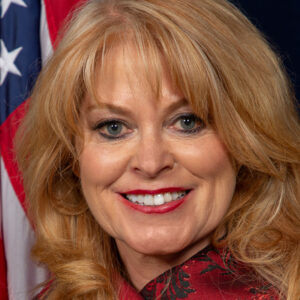In a bid to rein in the Biden administration’s attacks on the energy industry, Pennsylvania State Treasurer Stacy Garrity and 14 other state treasurers recently sent a letter to John Kerry, President Joe Biden’s climate czar, to tell him to back off on a policy to restrict access to financial resources for companies in the energy sector. Those companies provide the country with coal, natural gas, and oil.
“In general, there shouldn’t be political pressure on banks and financial institutions about how they invest,” Garrity said during an interview with Delaware Valley Journal.
Asked about the importance of energy sector jobs for the commonwealth, Garrity said, “The energy sector is incredibly important to Pennsylvania and I don’t think they should allow politics to get in the way of these good-paying jobs for Pennsylvanians. So many businesses in Pennsylvania have been really, really hurt by the pandemic and the arbitrary shutdowns of businesses by the governor and through no fault of their own. Why should they be further impacted by (Kerry)?”
A 2019 U.S. Chamber of Commerce study estimated Pennsylvania shale drilling supports 609,000 jobs, $261 billion in state GDP, and $23.4 billion in state and local tax revenues.
A 2020 Public Utility Commissioner report found Pennsylvania has received nearly $2 billion in revenue from the natural gas impact tax since 2012. In 2019, counties and towns received $109.1 million for drilling; $72.1 million went to the Marcellus Legacy Fund for environmental, highway, water, and sewer projects, rehabilitation of greenways, and other projects; and $18.3 million was distributed to state agencies.
“We need coal for electricity,” Garrity said when asked about the public sentiment’s turn against using that resource, which is said to contribute to climate change, for fuel.
The coal industry provides some 18,000 direct and indirect jobs in the state, which are $30,000 a year higher than the average Pennsylvania job. And the commonwealth is the third-largest coal-producing state in the nation, after Wyoming and West Virginia.
The letter sent by Garrity and her fellow treasurers from West Virginia, Ohio, Alabama, Arizona, Arkansas, Idaho, Kentucky, Mississippi, Missouri, Nebraska, North Dakota, Oklahoma, South Carolina, and South Dakota detailed their concern to Kerry, the Presidential Special Envoy for Climate.
The state treasurers said the Biden administration’s backdoor pressure on U.S. banks and other financial institutions to turn off the financial spigot to energy companies “will discriminate against law-abiding U.S. energy companies and their employees, impede economic growth and drive up consumer costs.”
“As a collective, we strongly oppose command-and-control economic policies that attempt to bend the free market to the political will of government officials,” the letter states. “It is simply antithetical to our nation’s position as a democracy and a capitalist economy for the Executive Branch to bully corporations into curtailing legal activities…We refuse to allow the federal government to pick our critical industries as losers, based purely on President Biden’s own radical political preferences and ideologies.”
Meanwhile, Pennsylvania Sen. Pat Toomey and other Republican members of the Senate Banking Committee have also pushed back against the Biden administration’s bid to coerce banks to stop lending to energy producers. The senators called on the administration to walk back its policy. In their letter, the senators said the Biden policy resembled the “Obama administration’s notorious’ Operation Choke Point’ scandal, in which financial regulators attempted to coerce banks into denying services to legal yet politically disfavored businesses.”
“If the administration wants to ban or diminish fossil fuel energy production to achieve environmental policy outcomes, it should not misuse financial regulators,” the senators wrote. “Instead, it should come to Congress and seek to have the law amended. Until then we strongly urge the Biden administration to refrain from abusing government power—via executive order, regulatory or supervisory overreach, or informal pressure—to steer lending and investments away from lawful energy businesses.”
Meanwhile, the state treasurers, who control some $600 billion in assets, said they will “put banks and financial institutions on notice of our position, as we urge them not to give in to pressure from the Biden administration to refuse to lend to or invest in coal, oil and natural gas companies…It is only logical that we will give significant weight to the fact that an institution engaged in tactics that will harm the people, whose money they are handling before entering into or extending any contract.”
To that last point, DVJ asked Garrity, “If it’s wrong for these financial institutions to be picking winners and losers, what do you say to people who read this letter and say, ‘Gee, it kind of sounds like you guys are picking winners and losers?’”
“When we look at our large or very large contracts with our financial institutions, this is one of many factors that could be considered,” Garrity said. “So it’s important to us, but this isn’t the only one.”
As of press time the state treasurers had received no response from the Biden administration.

